Foxes Safari Camps, a family-owned portfolio of seven camps and lodges across southern and western Tanzania, has been awarded Gold in the ‘Can an All-Inclusive be Responsible?’ category at the 2025 WTM Africa Responsible Tourism Awards, held at the Cape Town International Convention Centre on 10 April.
Discover Tanzania’s Swahili coast with Foxes Safari Camps
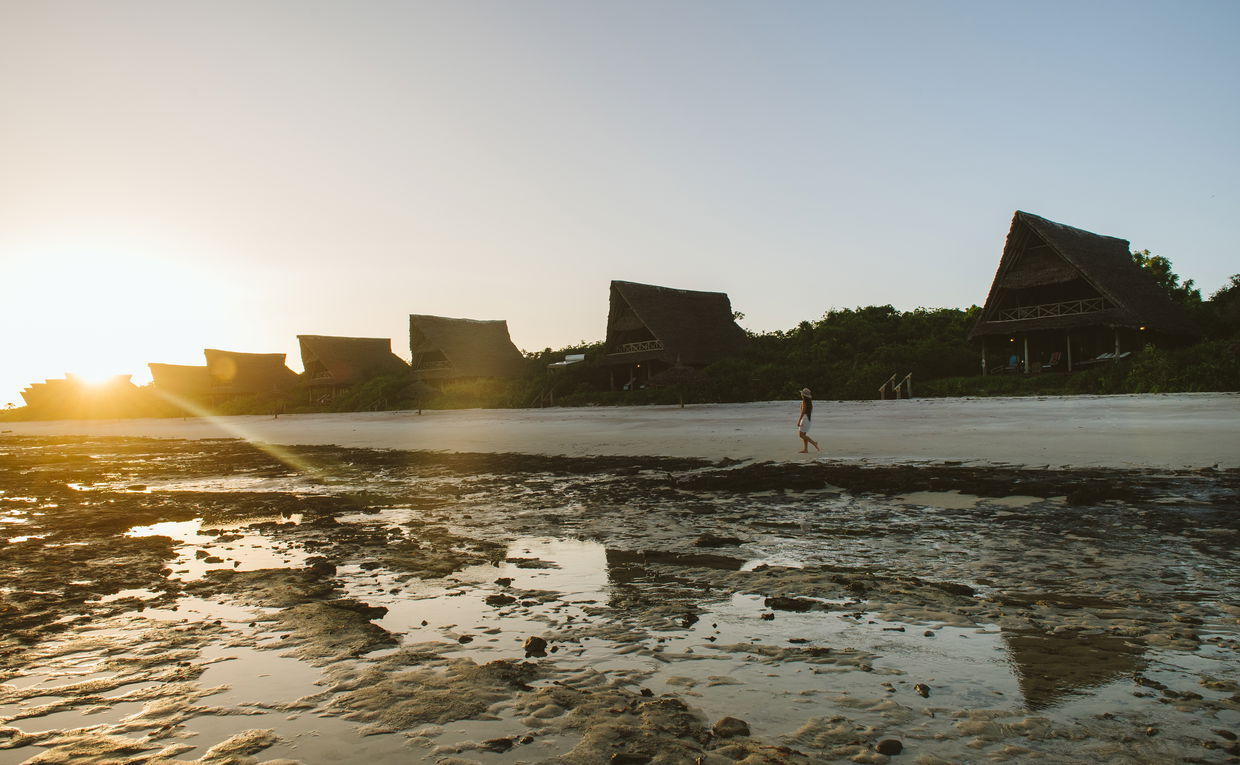
Imagine having an island all to yourself – well, almost entirely to yourself, besides a handful of other guests. At Lazy Lagoon Island Lodge, you can indulge in restful beach days interspersed with adrenaline-fueled water activities, day trips to desolate sandbars, and a lesser-visited UNESCO World Heritage Site, along Tanzania’s Swahili coastline.
Island life unfolds at a pace of your choosing – whether you prefer to watch the glimmering sun rise over the Indian Ocean from your beach-front banda, spend your time between the swimming pool and your daybed, or find solace in a book beneath your palm-frond sala on the beach.
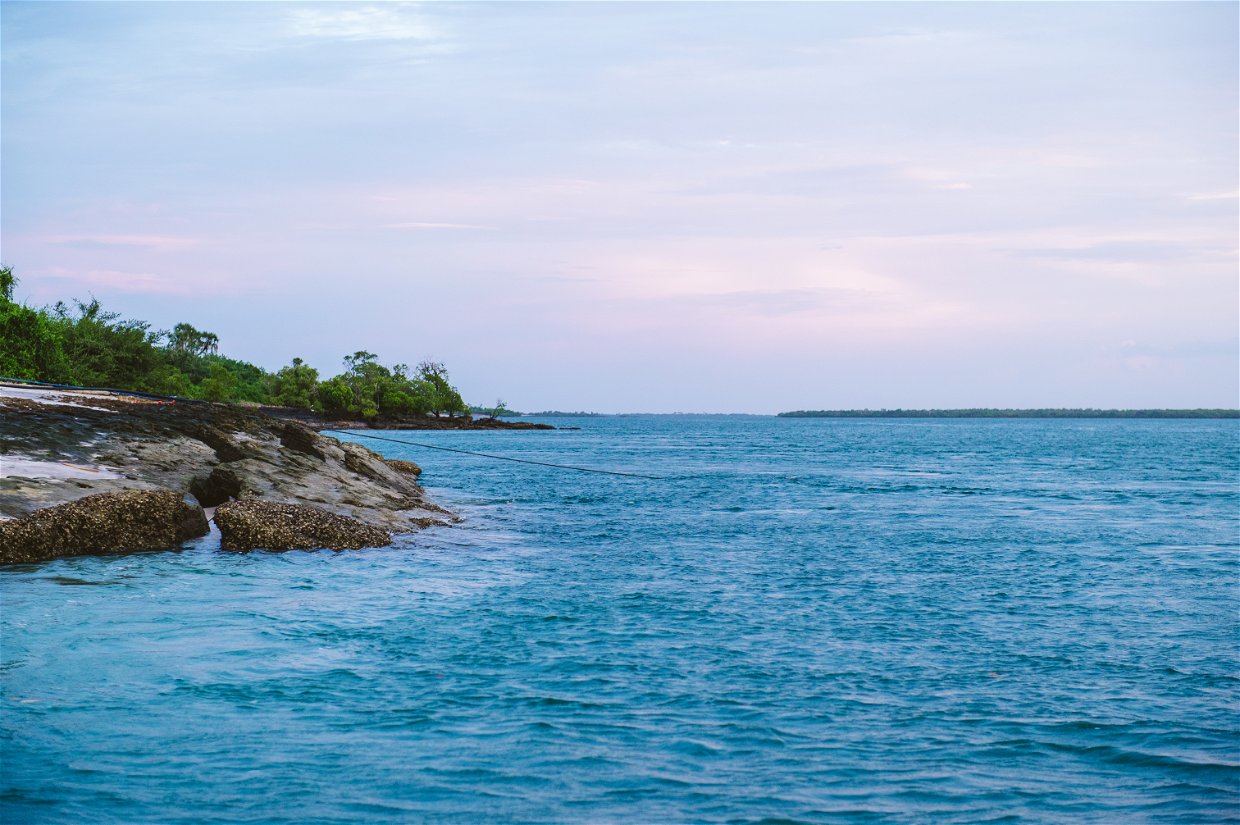
Each day at Lazy Lagoon invites you to relax, whether you do so at the lodge’s al fresco reading room or stretched out on a lounger by the swimming pool. Perhaps you prefer walking along the length of the 9km-long sandspit that has been sculpted into three crescent-shaped beaches by the tides. Regardless of how you choose to spend your downtime, there’s always time to explore the secrets of the rock pools at low tide, discover marine life among the coral reefs during a snorkelling excursion, kayak along the mirror-like lagoon, or take in the mangrove forests from a stand-up paddleboard.
Should you wish to turn things up a notch, the lodge serves as a gateway to adventure during a half-day boat excursion to a private sandbar that emerges from the water for a few hours before disappearing into the depths of the ocean once again. Choose between sunbathing on the white sand and watching fishermen go about their business as they float by, to water activities such as snorkelling above coral reefs and stand-up paddle boarding. And there’s always the anticipation of seeing a dolphin fin cresting the waves, as you indulge in a fish and seafood barbecue that’s freshly prepared over the fire.
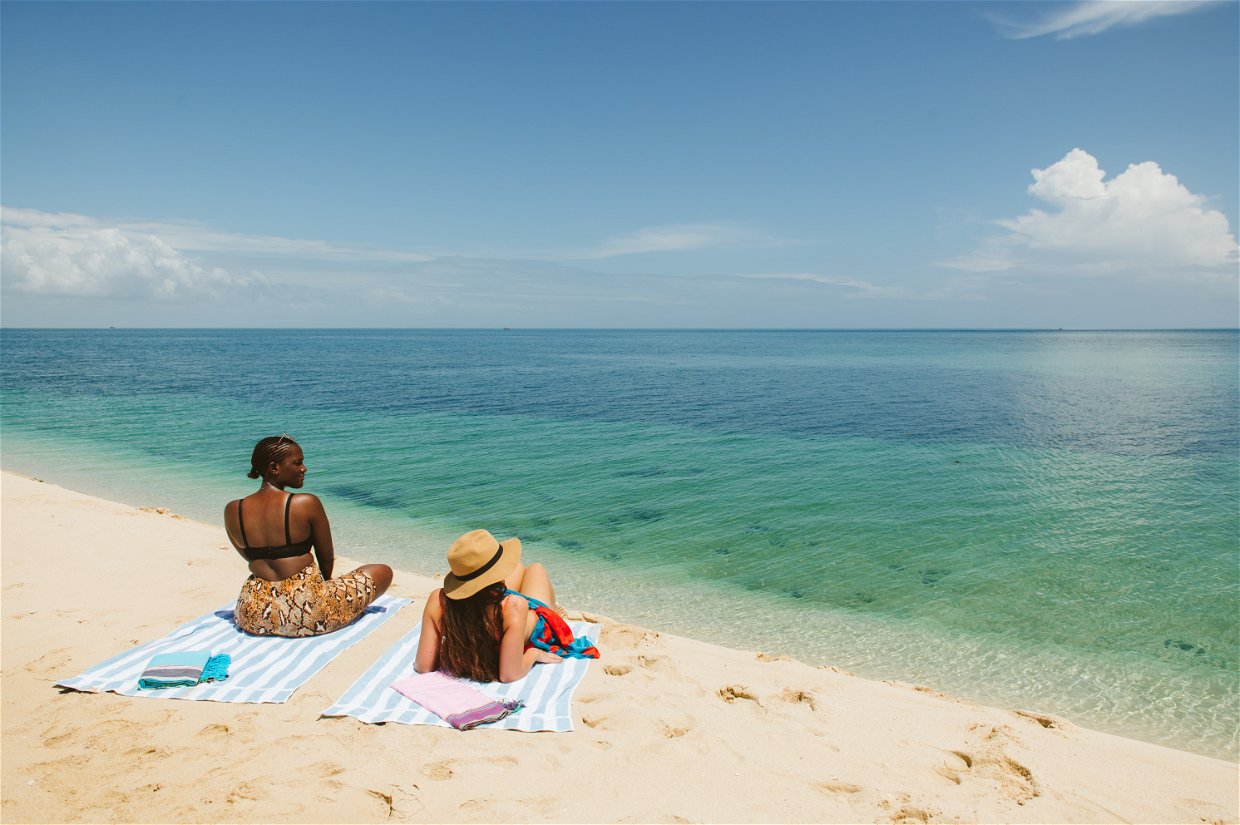
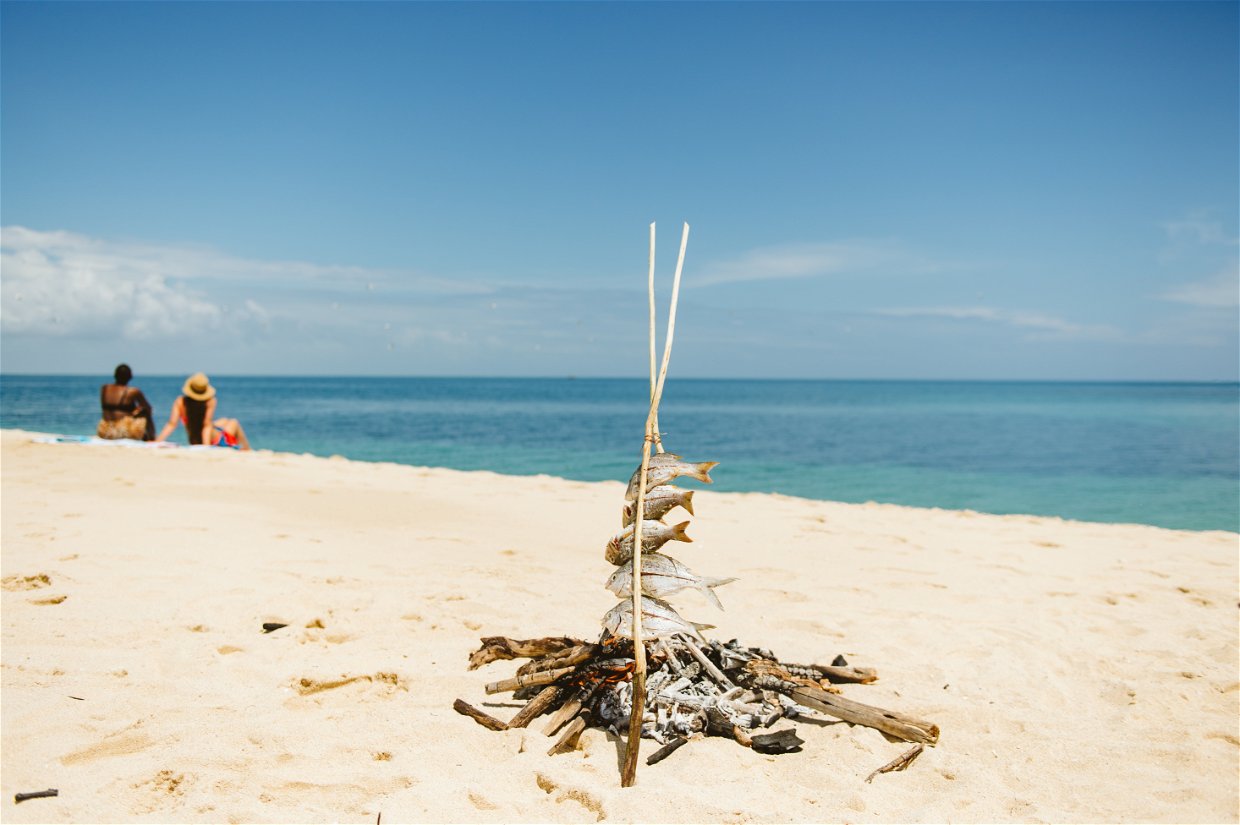
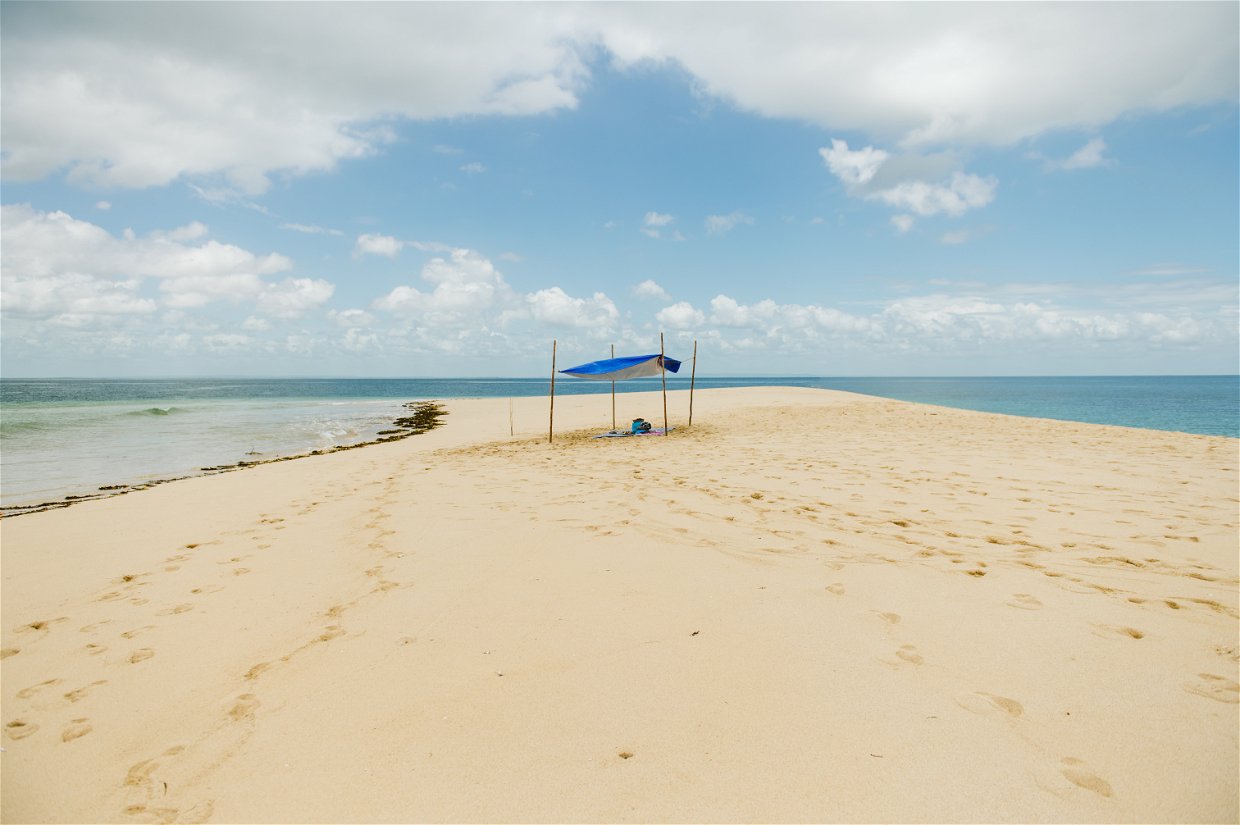
Explore 'Mwamba Kuni,' a tidal sandbar close to Lazy Lagoon Island
On yet another day, you may want to cross the water to the mainland for a guided tour of a local fish market coupled with the historic sites of Bagamoyo and the 13th-century Kaole Ruins. These culturally important sites narrate stories of the ivory and spice trade of yesteryear, slavery, and its liberation, as well as German occupation predating World War I.
Few travellers explore Tanzania’s slave trade history beyond the shores of Zanzibar. In reality, Bagamoyo was once East Africa’s most important trading port. Much like commodities, slaves were rounded up from across East Africa to Bagamoyo before being shipped off to Zanzibar and beyond. This experience juxtaposes the overcrowded, bustling energy of Stonetown, even though it also holds UNESCO World Heritage Site status.
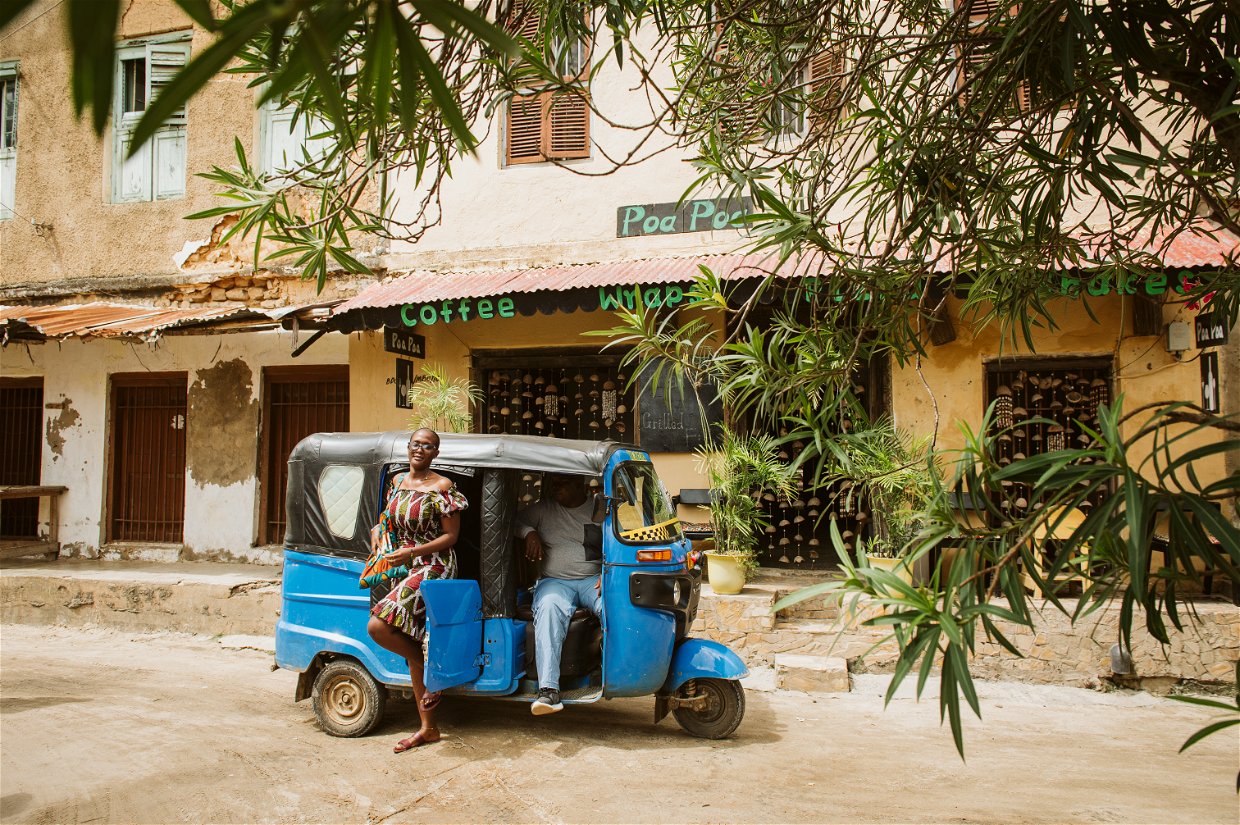
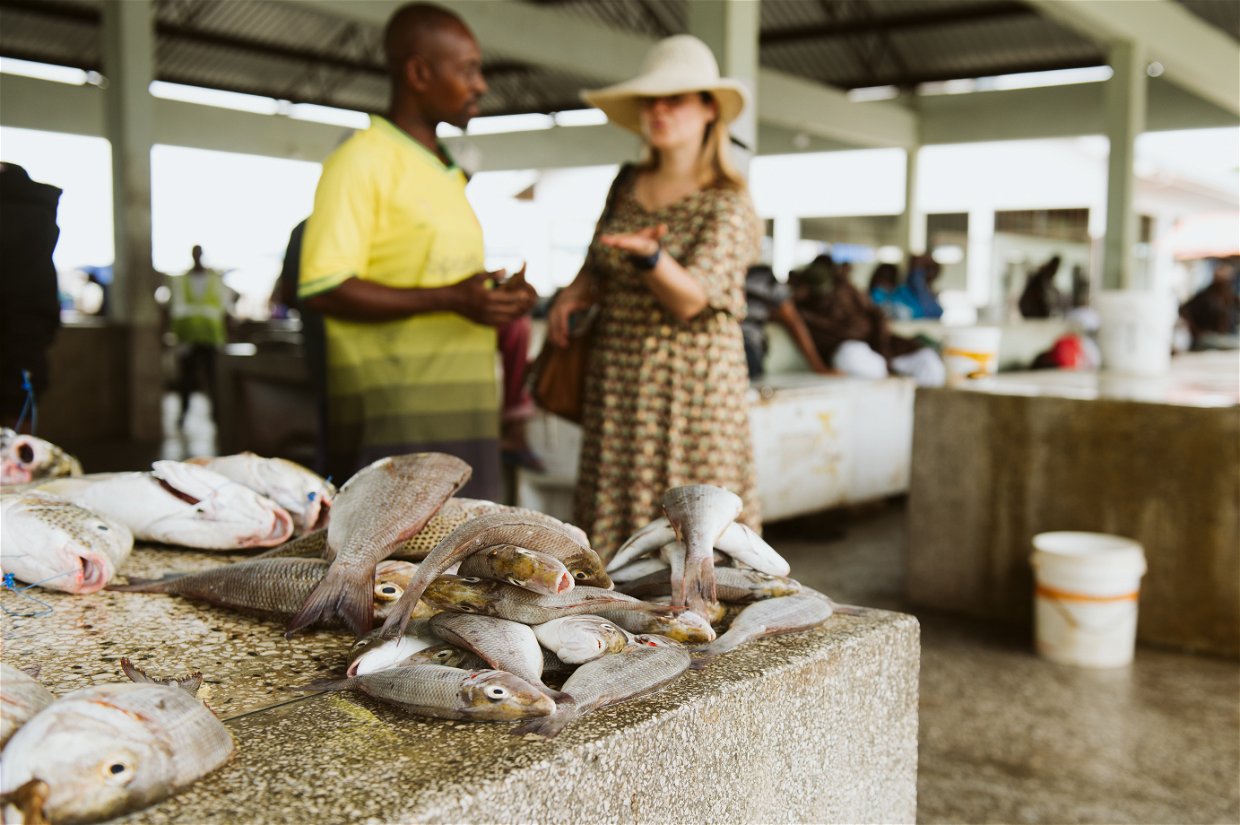
Visit the local fish markets and historic sites of Bagamoyo
A sun-soaked holiday at Lazy Lagoon Island Lodge can be as busy or as quiet as you like. At the same time, it seamlessly intertwines the cultural, historic, and natural splendours of the Swahili coast, making it the perfect stop on your way to or from your East African safari.
Island life at Lazy Lagoon Island Lodge
The lodge is one with the landscape. Set amidst a mahogany and mangrove forest, it shelters wildlife unlike that which you will find on safari at other Foxes Safari Camps properties. Each morning, the island sleepily awakens to the ebb and flow of the Indian Ocean and the whisper of a coastal breeze. This sets the rhythm for your day, as seagulls squawk in the distance and hermit crabs scuttle along our pathways in search of larger shells. By night, Lazy Lagoon falls asleep to the sounds of bushbaby calls and genets going about their nocturnal adventures.
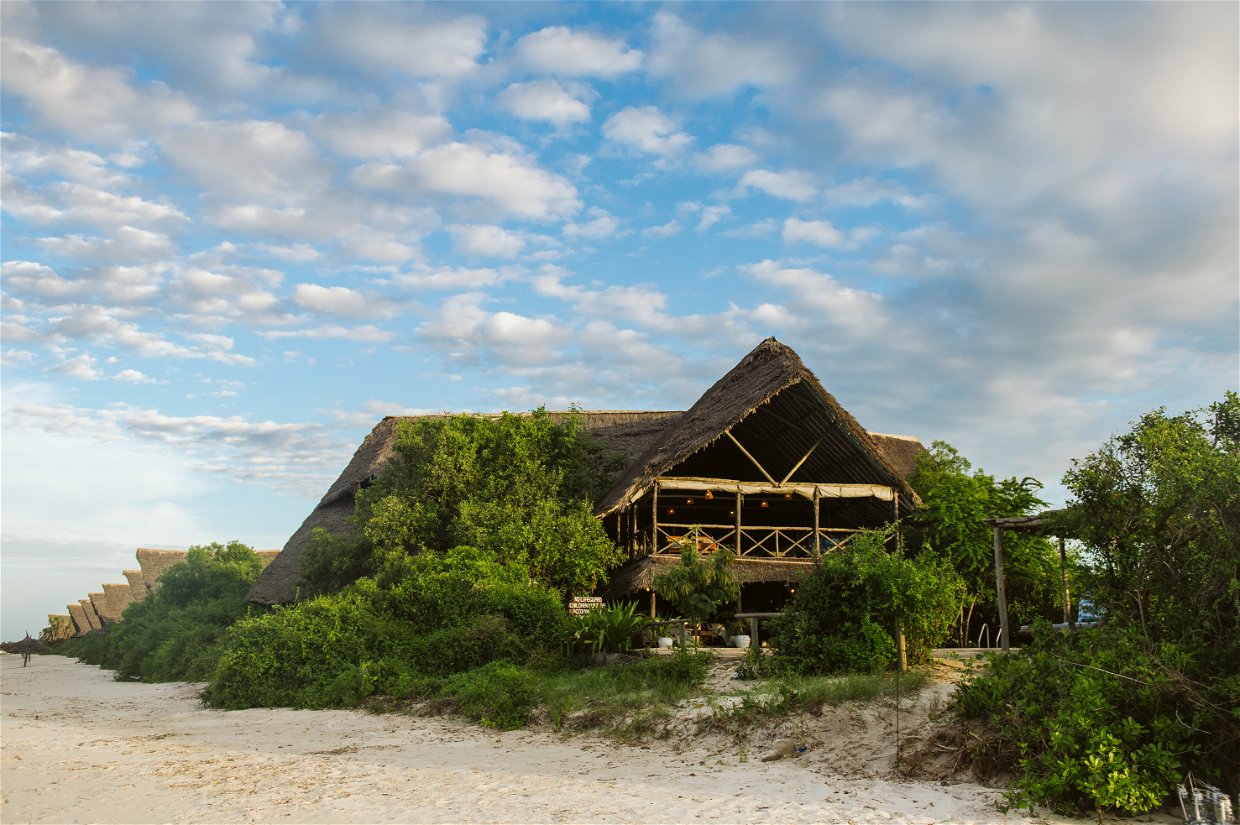
Relax and unwind at Lazy Lagoon Island Lodge
Life at the lodge is deliberately slow and we’ve curated it that way. We intentionally channel the pole pole lifestyle. This encourages guests to connect with the true meaning of island living, with a little bit of help from our pool-side loungers, beachfront salas, al fresco reading room, and leisure areas for a round of snooker or darts.
Our collection of 12 A-frame, en-suite bandas feature an airy loft with two twin beds – ideal for families travelling with children – and an upstairs balcony with unobstructed ocean views. It’s the ideal spot for a relaxing, full-body massage by our visiting masseuse. Meanwhile, the downstairs area, with its double or twin beds, leads out onto a spacious wooden deck with a hanging daybed – and the beach a few steps away.
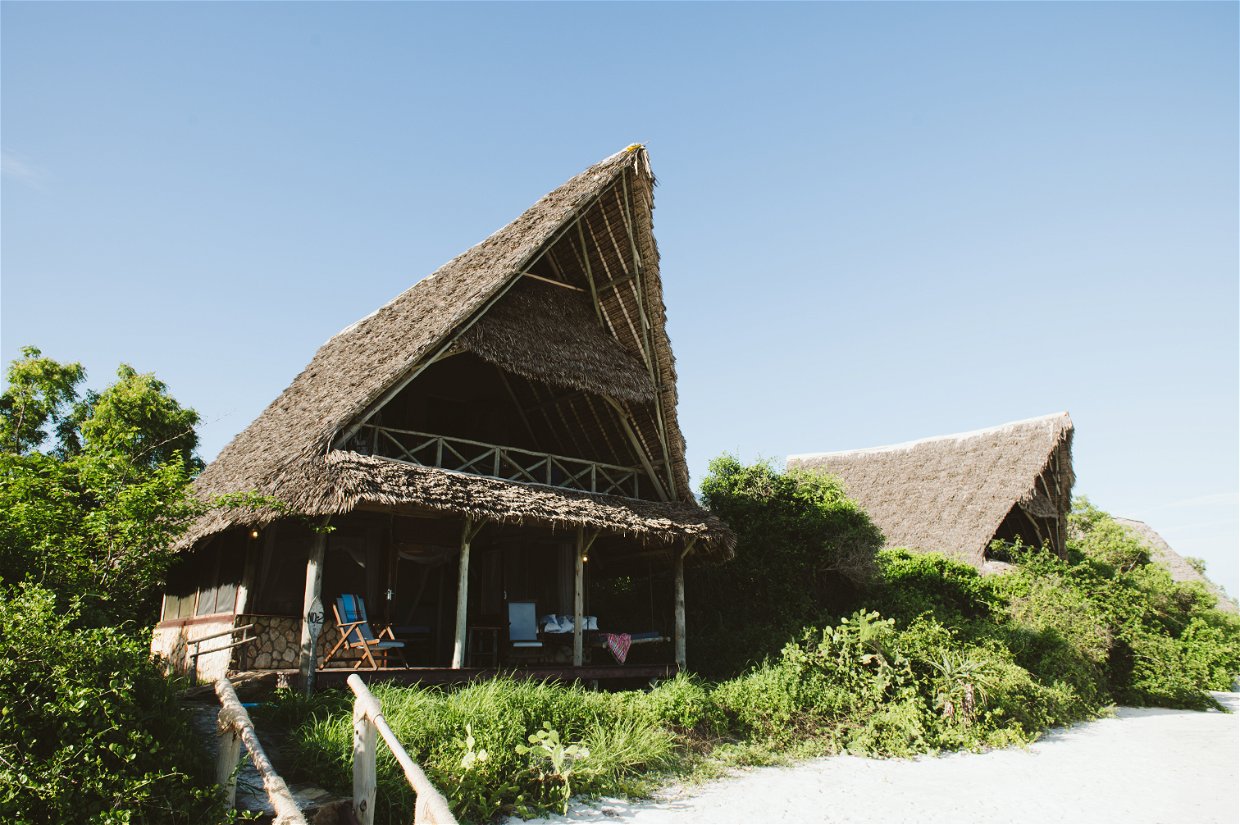
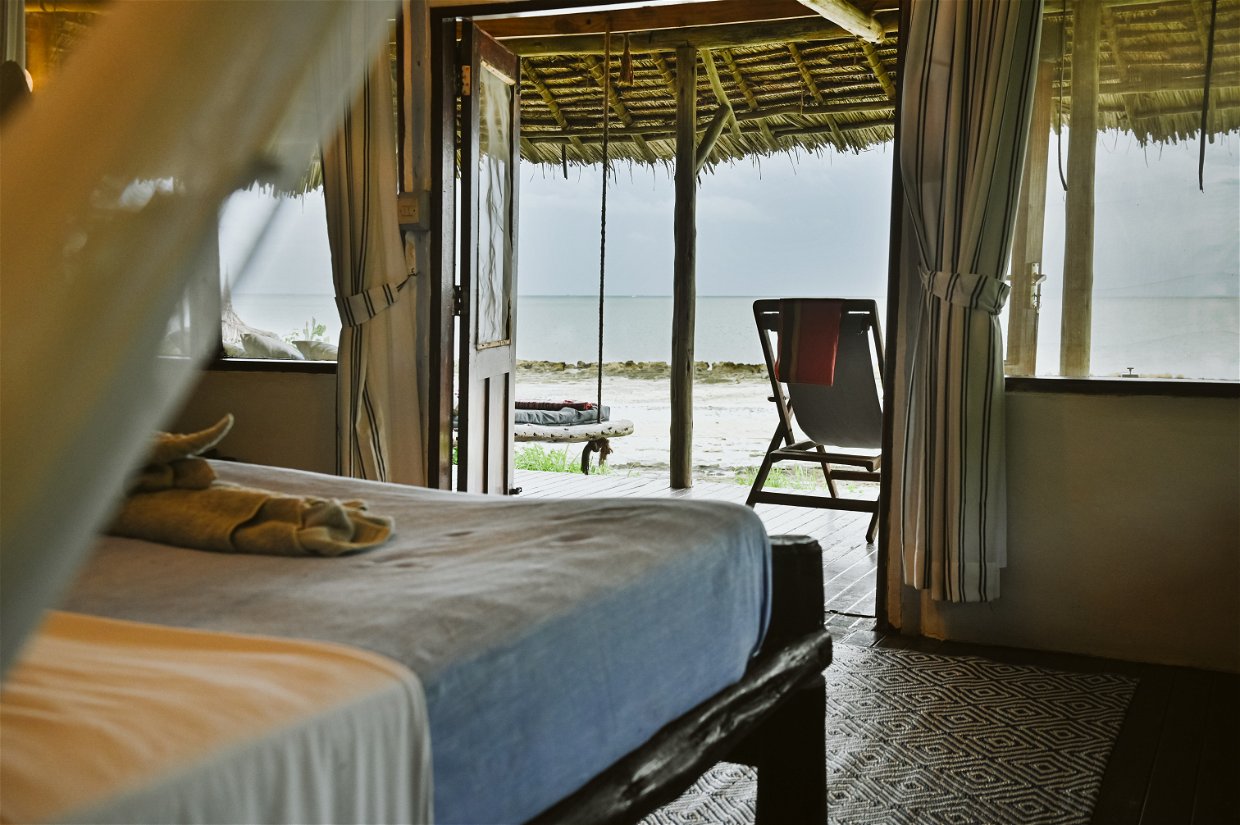
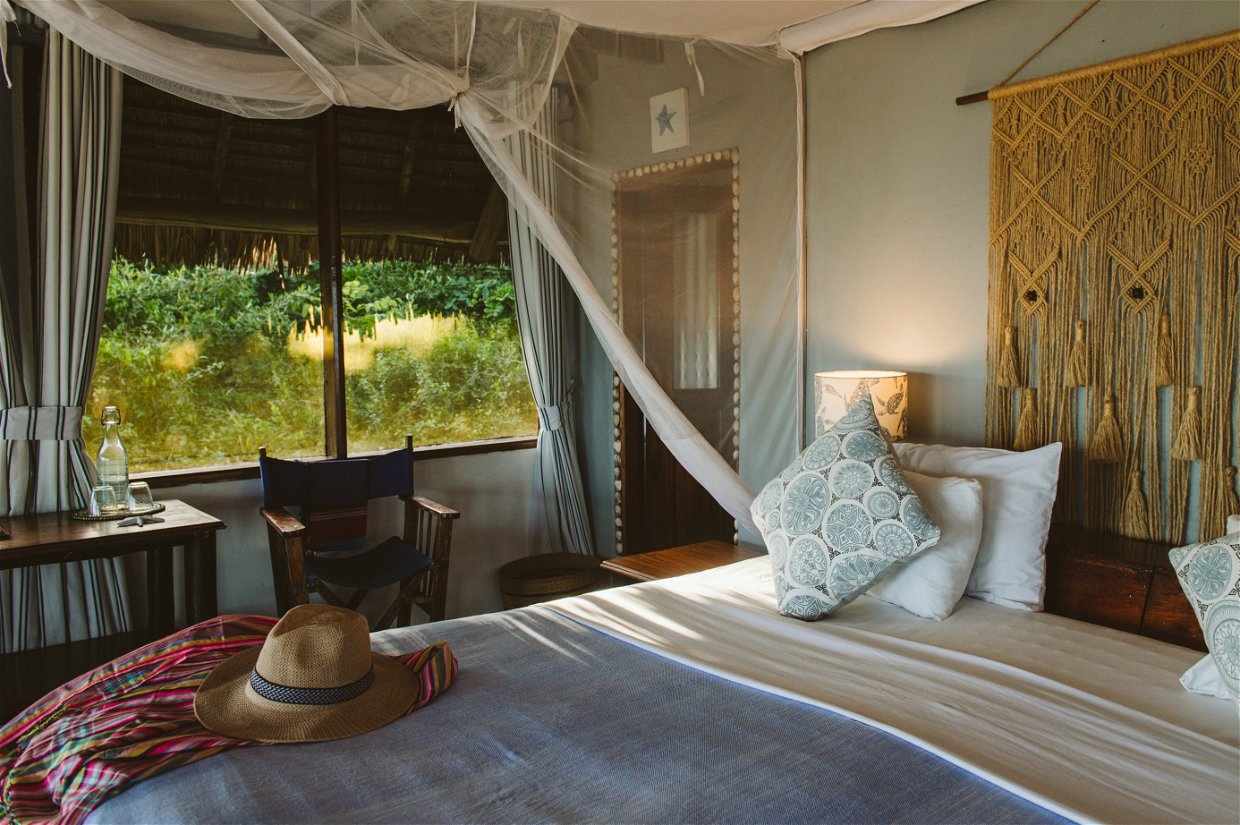
Our A-frame bandas offer sea views and beach access
Wining and dining at Lazy Lagoon
As the day draws to an end, guests gather around a beachfront bonfire to watch stars playfully twinkle alongside the flickering flames, while sipping on their sundowner of choice. With sustainability in mind, each day our chef and his team sources fresh, line-caught, and cast-net seafood from local subsistence fishermen with whom we have an ongoing relationship. It really doesn’t get any fresher than this.
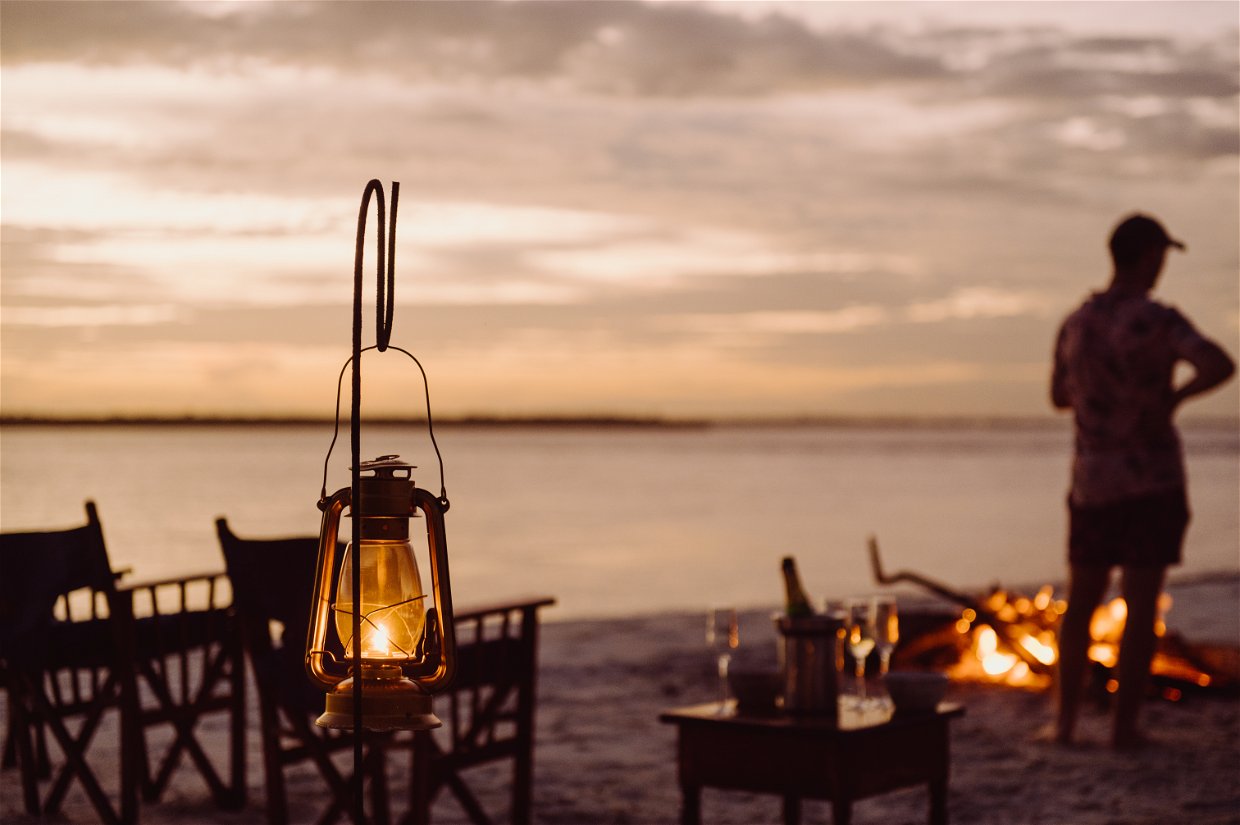
End your day with a beachfront bonfire as the sun sets over the ocean
The ocean’s bounty is served alongside produce and products from Foxes Safari Camps’ vegetable garden and farmhouse located at Mufindi Highlands Lodge, where we source our coffee beans, roasted macadamia nuts, cheese, meat, much of our fruits and vegetables alongside other staples. What we don’t produce or supply ourselves, we sustainably source from communities across the water or from our trusted suppliers in Dar es Salaam.
How to get to Lazy Lagoon Island Lodge
Lazy Lagoon is located on Ras Luale spit, less than 2.5km from mainland Tanzania, along the Swahili coast near Bagamoyo. Getting to our off-the-grid lodge is where the adventure begins. With its expert crew and fleet of Cessna 208s, Safari Air Link runs regular, scheduled flights from key tourist attractions and national parks across northern and southern Tanzania to Dar es Salaam.
You can drive yourself to Mbegani Fisheries Institute, located 10km south of Bagamoyo, where your car is safe with our 24-hour watchman, or you can undertake the short, 70-km drive from Dar es Salaam in our AC transfer vehicle with our professional drivers. The lodge’s private boat crosses the Indian Ocean a number of times a day to ferry guests between the mainland and our coastal lodge. The boat departs from mainland Tanzania to Lazy Lagoon at: 12:00; 15:00; 18:00. It returns from Lazy Lagoon to mainland Tanzania at: 10:00; 14:00; 16:00.
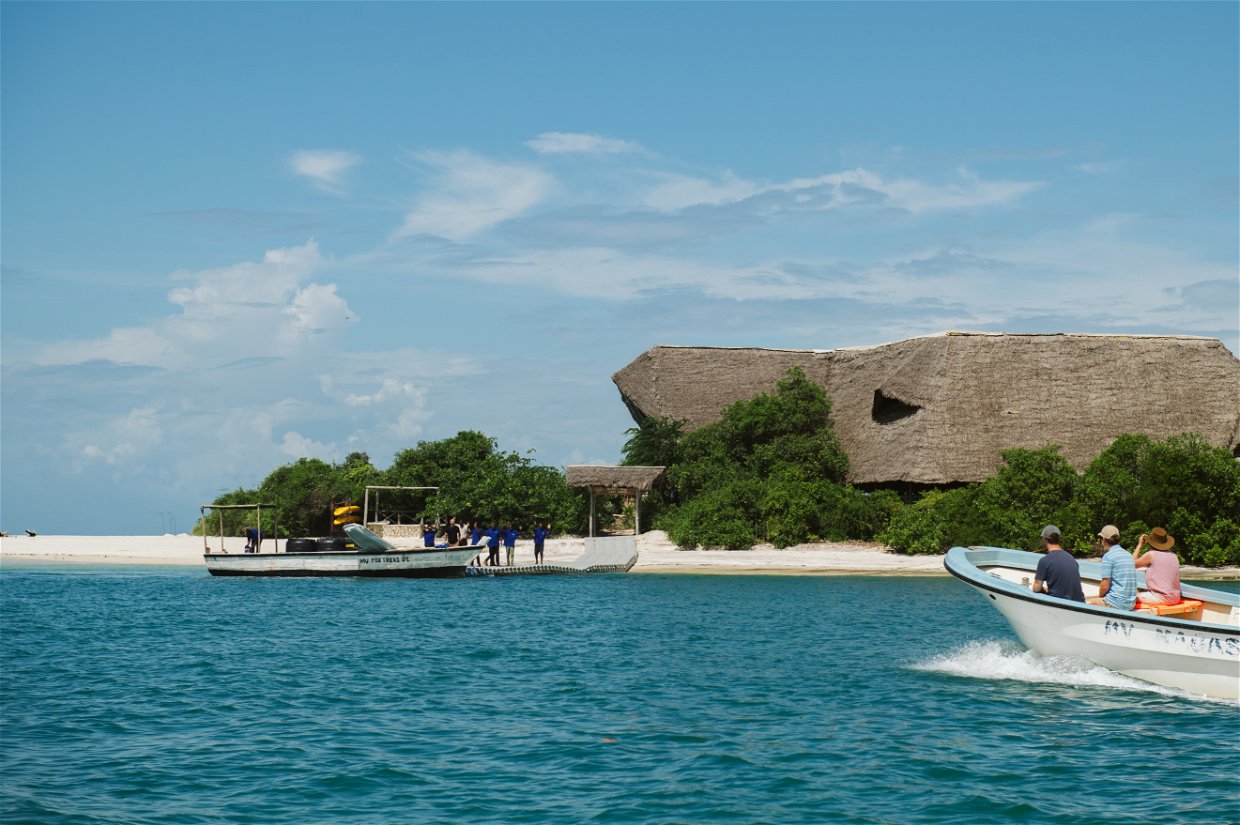
The lodge's private boat ferries guests between the lodge and mainland
When to visit Tanzania’s Swahili Coast
No matter the time of year you choose to visit us, Lazy Lagoon is open all year round. The Swahili coast experiences some rain throughout the year, though unlike other parts of Tanzania, this rainfall is unpredictable and fleeting. Due to our coastal location, we do not experience a long or short wet season like other parts of the country or our six other camps and lodges. Rest assured that it never rains for too long and the weather often clears up within a few hours or a day or two.
Further Reading
Far removed from the trodden tyre tracks of more frequented national parks and safari camps, I'm wallowing in the private plunge pool of our spacious Meru-style, tented suite at Katavi Wildlife Camp, indulging in a moment of solitude. Or so it seems. The silence is punctuated by the unmistakable sound of cracking branches, which signals that elephants are on my doorstep.
Journey to Ruaha National Park, Tanzania's untamed wilderness, where the Fox family has built a legacy of conservation and exploration. Discover why Ruaha is the country’s best-kept secret – even though it’s characterised by dramatic landscapes, abundant wildlife and recognised as a global biodiversity hotspot.

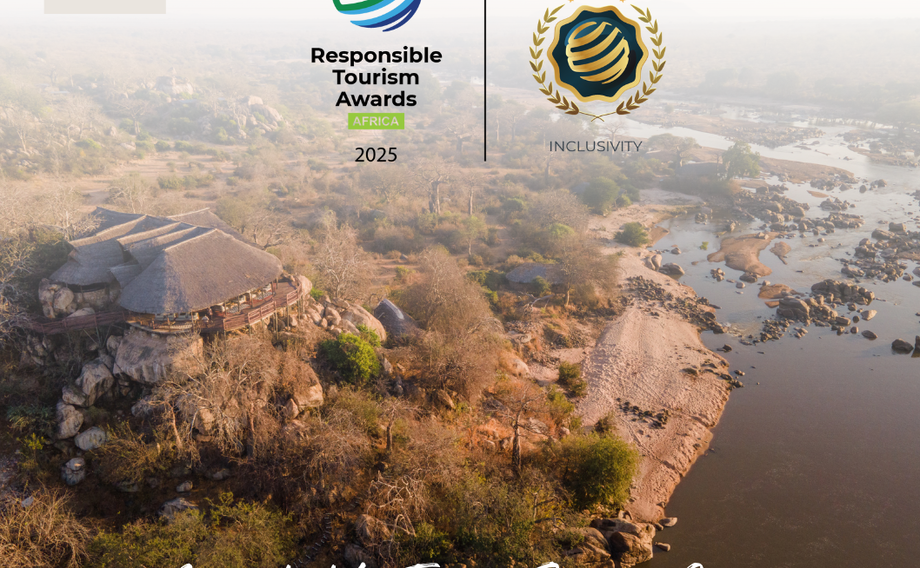
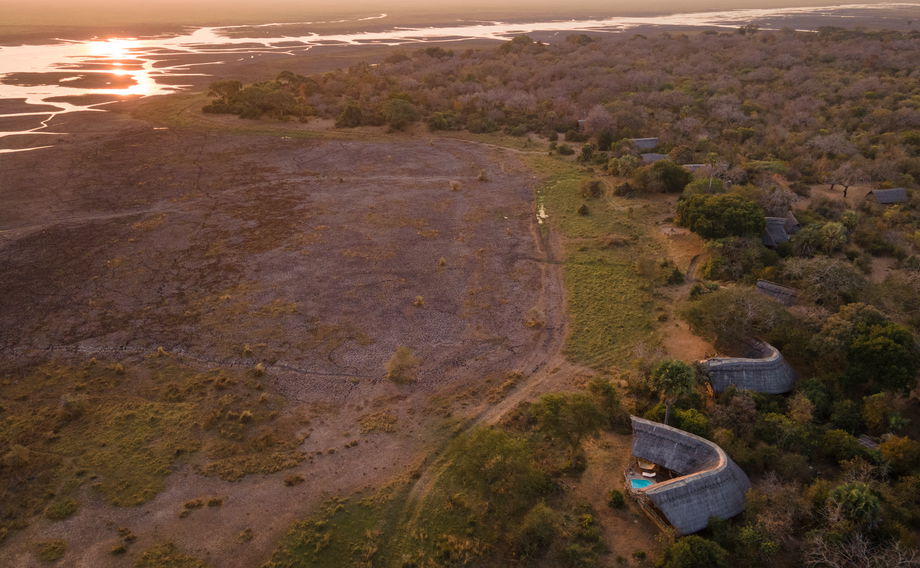

Share This Post